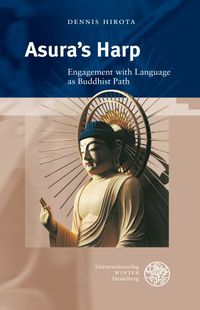
Asura´s Harp
1. Edition, 2006
156 Pages
ISBN: 978-3-8253-5264-6
Product: Book
Edition: Softcover
Subject: Philosophie
Series: Philosophie und Realistische Phänomenologie/Philosophy and Realist Phenomenology. Studien der Internationalen Akademie für Philosophie im Fürstentum Liechtenstein/Studies of the International Academy of Philosophy in the Principality Liechtenstein, Volume No.: 17
Available: 23.11.2006
Keywords:
Sprache, Shinran (Shonin), Reines Land, Religiöses Bewusstsein, Buddhismus, Shinran, Französische Sprachphilosophie, Buddha, Truth, Language, Dharma
Asura’s Harp discusses the understanding of language and its role in religious awakening in a major stream of Mahayana Buddhist tradition. It focuses on the Pure Land Buddhist thought of Shinran (1173-1263), one of the most consequential thinkers in Japanese history. Unlike monastic traditions that seek the eradication of delusional attachments through transcendence of ordinary thought and speech, Shinran teaches that human existence is inevitably characterized by linguisticality and that the genuinely practicable path to realization lies in engagement with language.
Asura’s Harp presents a groundwork for conversation between contemporary Western thought and one of Asia’s most prominent traditions of Buddhist praxis.
""
Michiko Yusa in: Philosophy East and West, Vol. 59, No. 3, 382ff
""
Joseph S. O´Leary in: Japanese Journal of Religious Studies, Vol. 37/1 (2010), 167ff
""
George J. Tanabe in: Monumenta Nipponica, 62:4, 515f




